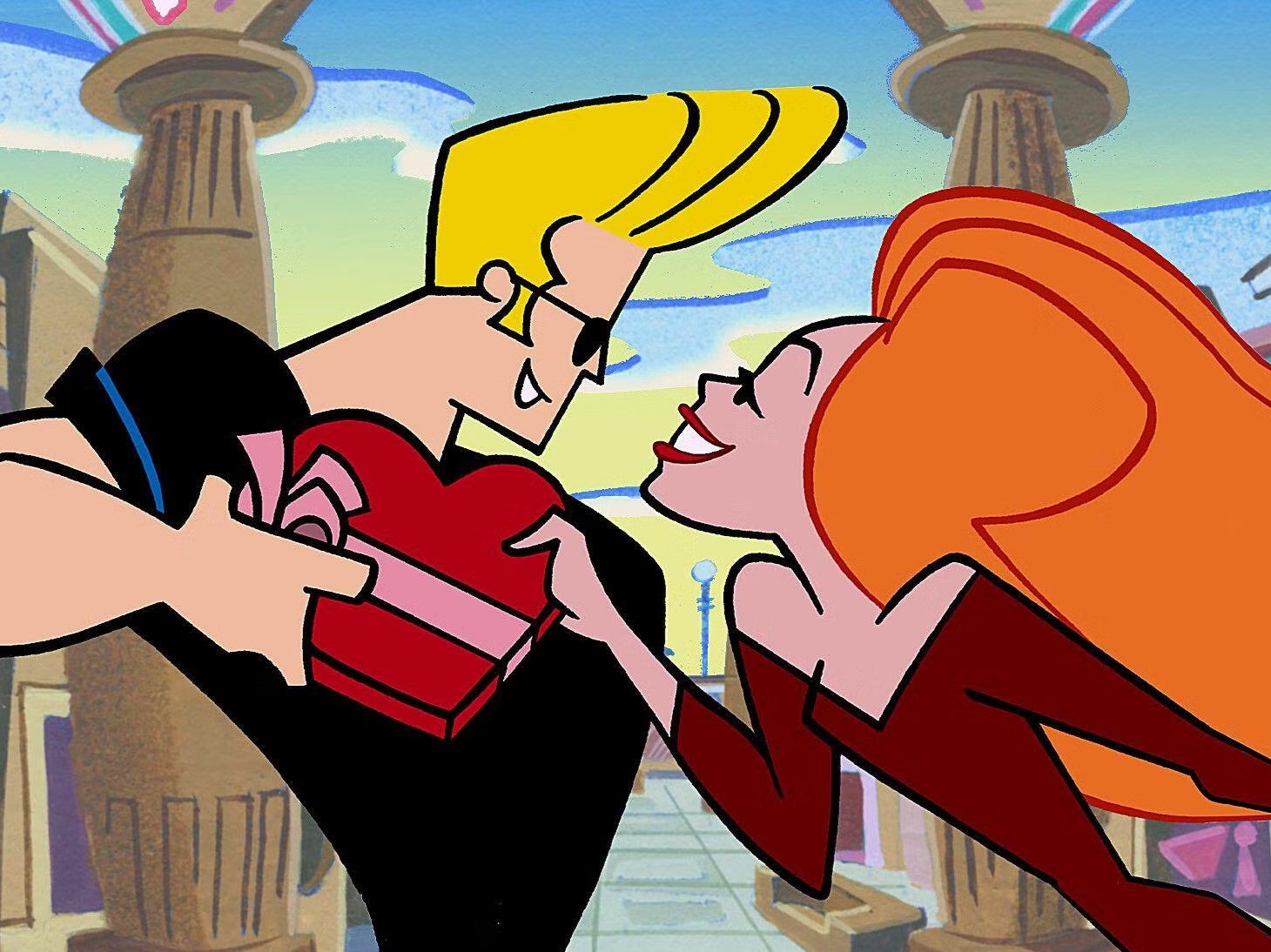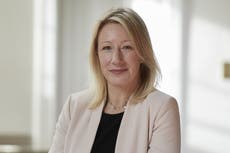‘I’ve lost the will to live on them’: Meet the most desired men on dating apps
Amid men who claim to be perpetually unlucky in love are the chads, jocks and Disney princes of life, whose dating app profiles prove far more successful than those of mere mortals. Ben Bryant meets them


We all know about the men who fail at dating apps. The men we sometimes call incels. The men whose Hinge acts like it’s stuck in airplane mode. The men whose only experience of eye contact with a woman happens on TikTok. The men with no likes. The men who cope and seethe online. But what about the chads?
A chad is the opposite of an incel. He’s an alpha male whose exceptional good looks make picking a date feel like flicking through Top Trumps. Chad’s modern roots as a meme lie in the increasing body of research and surveys on dating apps, which indicate that in any given pool of men, women tend to court the most desirable – and ignore the rest. This top tier of men are understood to dominate on apps, accrue the most likes, get all the dates, and presumably have financial security, enviable jobs, a strong jaw, and a hairline that holds formation like the Spartan army.
But they also have a shady reputation. Just as Western society reserves little empathy for the men who have too little sex, so it has an uncertain relationship with the men who have too much. A few years ago, the shaming of West Elm Caleb – a New York man who was exposed for dating and ghosting multiple women – may indicate a double standard in our treatment of men and women who date a lot. Men who haven’t settled can be unsettling to us. But does that mean every chad is a cad?
Brad* is a 35-year-old project manager from northwest London. He does not drink, enjoys walking his dog, and was once one of Hinge’s five most popular male users in London. He was even scouted to be the eponymous bachelor on the UK version of the US dating show The Bachelor – although, after an initial flirtation, he declined to take things further. Intelligent, confident, unusually handsome and financially secure, Brad is not chronically online enough to know what a chad is (another good sign), but on paper he is one of the most eligible men in the country. Is he having fun? “I’ve lost the will to live on apps,” he says. “But I feel caught in that place. It’s how people date nowadays.”
Brad has mixed feelings about apps. He’s clearly wary about sounding arrogant, and I get the impression he’s even more successful than he lets on – but the numbers speak for themselves. His version of Hinge is brimming with likes and messages from women. He is also routinely sent virtual gifts called Roses, which signal intense interest from admirers and are rationed to one per user per week. Brad receives anywhere between five to 10 Roses every time he opens the app, which is typically once every two or three days. “I started deleting them,” he says. “I’ve never really understood those things.”
After more than a decade of using apps, he now feels like he’s getting “a dirty takeaway” every time he opens Hinge. The activity of dating itself is like “a prepaid monthly subscription”, he says – although not, he stresses, because of any of the people he dates. Brad says he finds it difficult to believe that any connection he makes is made to last. “I don’t think it’s anything to do with how anyone looks,” he says. “I think there’s enough of every type of shape, size, colour, creed, background. I think it’s that apps condition us to want new people, and more people.”
I’ve learnt a lot through my dating. But I also think that there is a great deal I don’t know about myself
Things have changed since the time of his grandparents, who were married their whole lives. When Brad’s grandmother died, his widowed grandfather didn’t date for another 20 years. This is in contrast to his own dating life, in which his longest relationship lasted three years, and his most serious happened when he was in his mid-twenties. He seems haunted by the ephemeral, “throwaway” nature of all the lost connections he’s accumulated over years of dating. “I just recently rematched with somebody who I matched with four years ago,” he says, “and we both remember seeing each other. But we don’t remember why we didn’t meet up.” He recalls another girl he met recently who chatted him up in a coffee bar, and who he went on to date for a few months. They split up because they lived on opposite sides of the city – Brad in northwest London and her closer to Croydon. “We may as well be in Leeds and Liverpool,” he shrugs.
One of his other problems is something akin to Paris Syndrome. Paris Syndrome is a condition associated mostly with Japanese tourists who dry heave and hallucinate with disillusionment upon discovering that Paris is not the fairytale city of their imagination. In an app date context, Paris Syndrome is the terrible realisation that there’s actually zero chemistry between you and the person you were vibing with in messages. For Brad, Paris Syndrome is a routine hazard of dating. He recalls a recent date with a professional athlete. “We had lots of similarities, like having motorbikes, dogs, and she was a business owner who was really successful. We dated three times. But by that point, I’d realised we were just very different people.”
On the surface, Brad’s problem appears to be too much choice – not a complaint that has much traction in our age of dating burnout. Men usually complain that they have no choice because they have no likes or matches. Women complain that they have no choice because the men are so underwhelming. Both camps dismiss each other online, nobody has sex, and the result is the slow death of civilisation as we know it.
The one thing that unhappy men and women do seem to agree on is that the rare man with lots of options who cannot settle must be some kind of sociopath – or at the very least a sex and love addict. If a man is lucky enough to be able to date lots and lots of women, then he is probably misleading them – because while women experience dating apps as a fruit machine of control freaks, perverts and bores, eligible men surely have an abundance of attractive, well-adjusted, potential long-term partners at their fingertips.
Or do they? Brad seems to have had his fair share of bad relationships, including at least one experience he describes as “extremely traumatic”. It took a year and a half for him to return to dating apps after that. These days, he is “hyper-vigilant”, he says. “I’ve had plenty of experiences of bad relationships. And some good ones that just grew apart.”

He has one story of rejection and it involves flirting on the London Underground – something I assume only Michael Fassbender in Shame has executed successfully. Brad was on the Tube when a teacher walked on board with an entire class of schoolchildren. After making eye contact with her and sensing a connection, he felt it would be awkward to say hello while on the Tube – but he decided to make an approach at the gate if she happened to get off at his stop. She did. “As she came through the gate with all the kids, I approached her and opened my mouth,” says Brad, “and she just said, ‘Absolutely not. This is deeply inappropriate.’”
Brad hasn’t asked that many people out, and says that he isn’t very good at it – but I take this to mean that he probably doesn’t really need to. I wonder what his friends think – but he doesn’t really talk to them about his dating experiences because they are so different to his own. “My friends would say I have high expectations,” he says.
Brad often remains friends with the people he’s dated, who he notices are now starting to get married and have children. He also wants a family – what would it take for him to get there? “I couldn’t give you the answer,” he says. “I’ve learnt a lot through my dating. But I also think that there is a great deal I don’t know about myself. What am I going to want in five to 10 years?”
For men who date men, the field is a little different – but some of the problems remain. Gay men tend to be less choosy than heterosexual women, and they enjoy higher rates of casual sex. You might think that would make it easier to meet someone. Not according to Ciaran Cole, 29, who was one of Tinder’s 30 most popular people on the app in 2018. Despite being single and incredibly good-looking, Ciaran doesn’t feel successful. “At the moment I’d rather not be using apps at all,” he says. “I’m only using them out of boredom.”
They said they were a Gemini, and they used it as an excuse to say there are different sides to them, and some of those sides are toxic
Ciaran doesn’t really have sex outside of relationships, and as a result he doesn’t use Grindr – but he is wildly popular on Hinge. He is amusingly self-deprecating and wary about sounding arrogant. But his Hinge is so active that when he showed it to some acquaintances recently they didn’t understand what they were looking at. “They were like, ‘Oh, my God, what is this version of Hinge? I’ve not seen it before. There’s all these things on it,’” he says.
The “things” were notifications – Ciaran gets “multiple” Roses every day and a huge amount of likes, as well as numerous prompts to respond to people. He responds in “bursts” because it’s impossible to keep up. It’s not a surprise to learn that asking him his “favourite colour” won’t cut it – it takes a good back and forth on apps to attract his attention. The people who stand out the most are not always the best dates, however. For Ciaran, Paris Syndrome is sometimes not so much a problem of disappointment as of total shock. “When you’re messaging someone, there’s a fine line in misreading their quirks,” he says. “You think they’re funny – and then you meet them and they’re an absolute nutter.”
Ciaran recalls a date he had recently where the person he met was two hours late. “They said they were a Gemini,” he says, “and they used it as an excuse to say there are different sides to them, and some of those sides are toxic.”
There are some positives to apps: Ciaran says they have taken him out of his comfort zone. “I would never otherwise go out and meet someone in Clapham, for example,” he says. But he acknowledges the negatives too. Apps feel like they “desensitise”, he says, and leave you “spoiled by choice”. This can also contribute to the breakdown of relationships, because another date is only a few swipes away. “I think if I was more limited in my access, then it might play on my mind more,” he says.
But who would ever argue for less choice? Most unhappy singles want the exact opposite. Only the true chads who walk silently among us have the keys to dating’s panopticon. Only they understand the Babylonian hubris and folly of packing the entire singles market into a giant game of Hot or Not. They gaze into the apps, and the apps gaze back.
Join our commenting forum
Join thought-provoking conversations, follow other Independent readers and see their replies
Comments


Bookmark popover
Removed from bookmarks